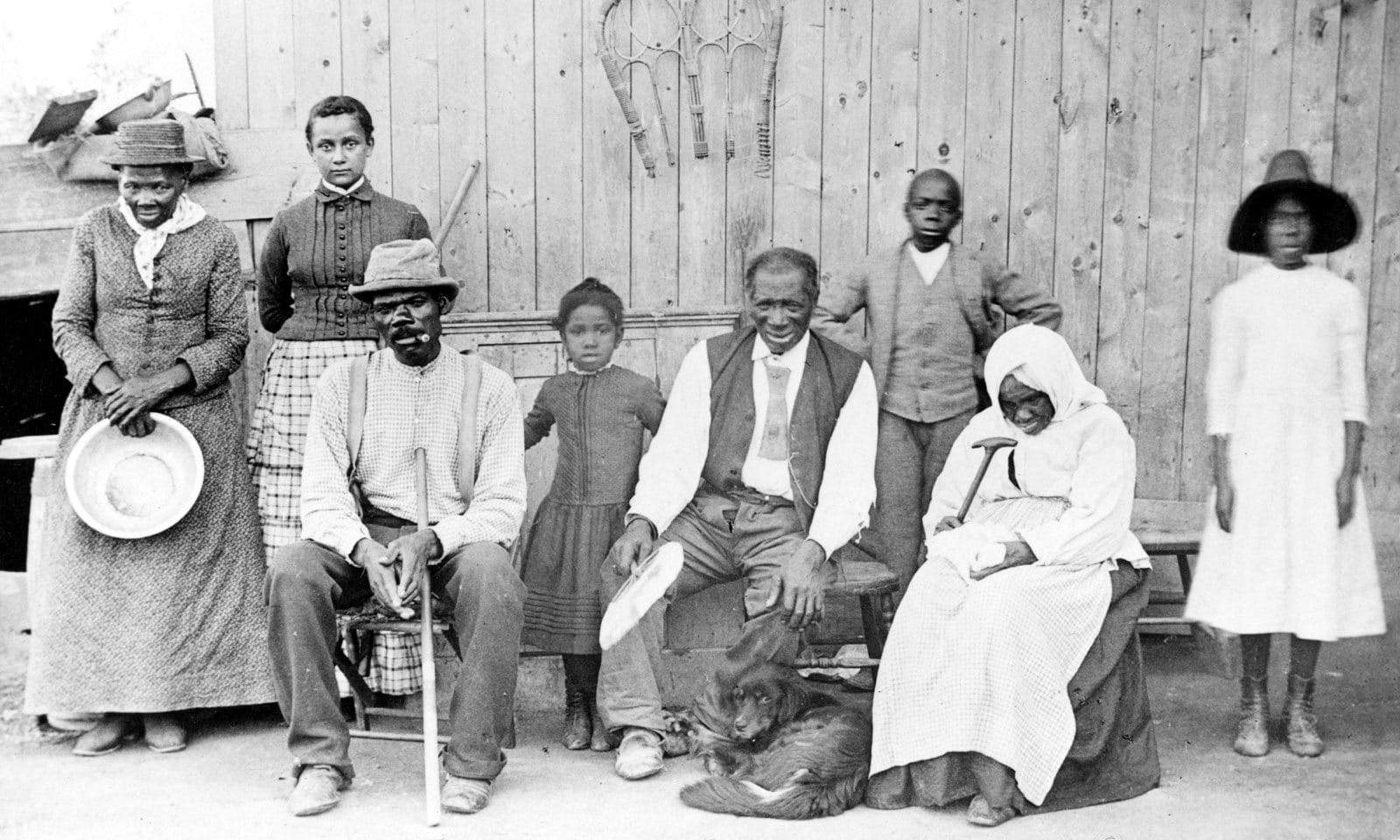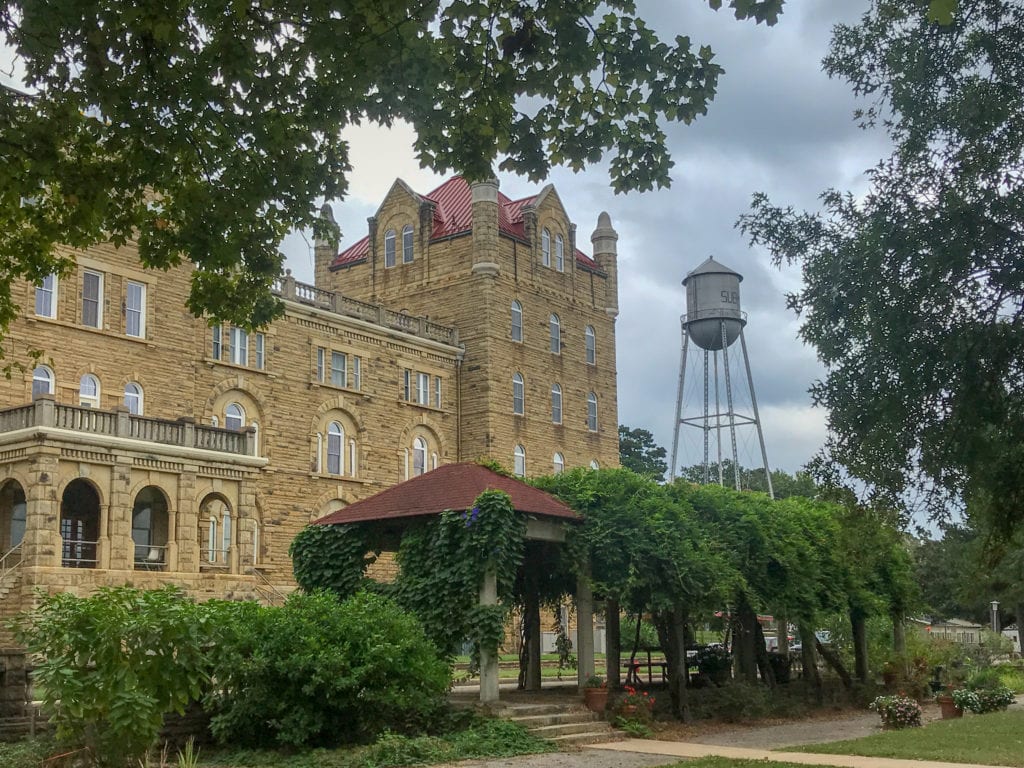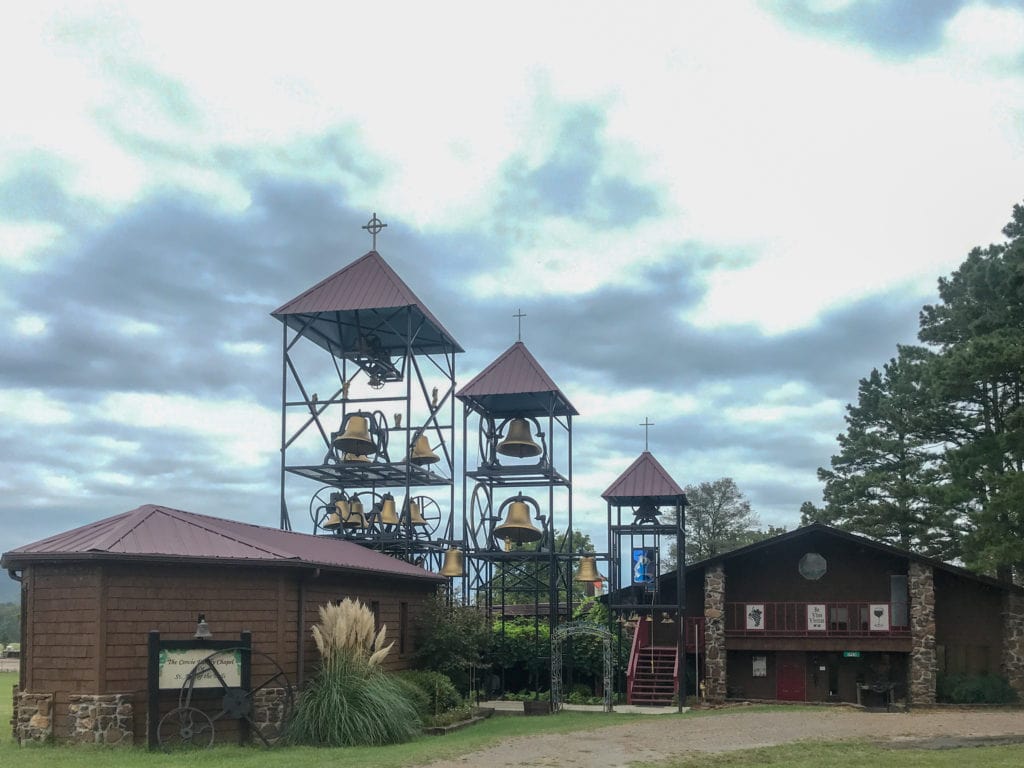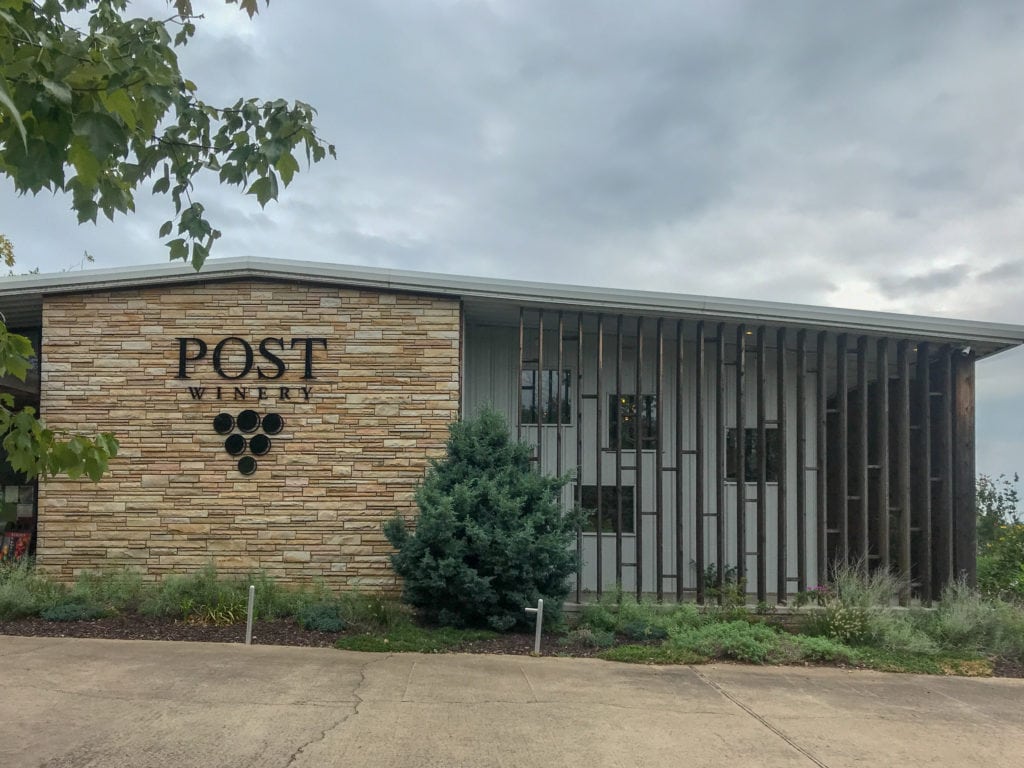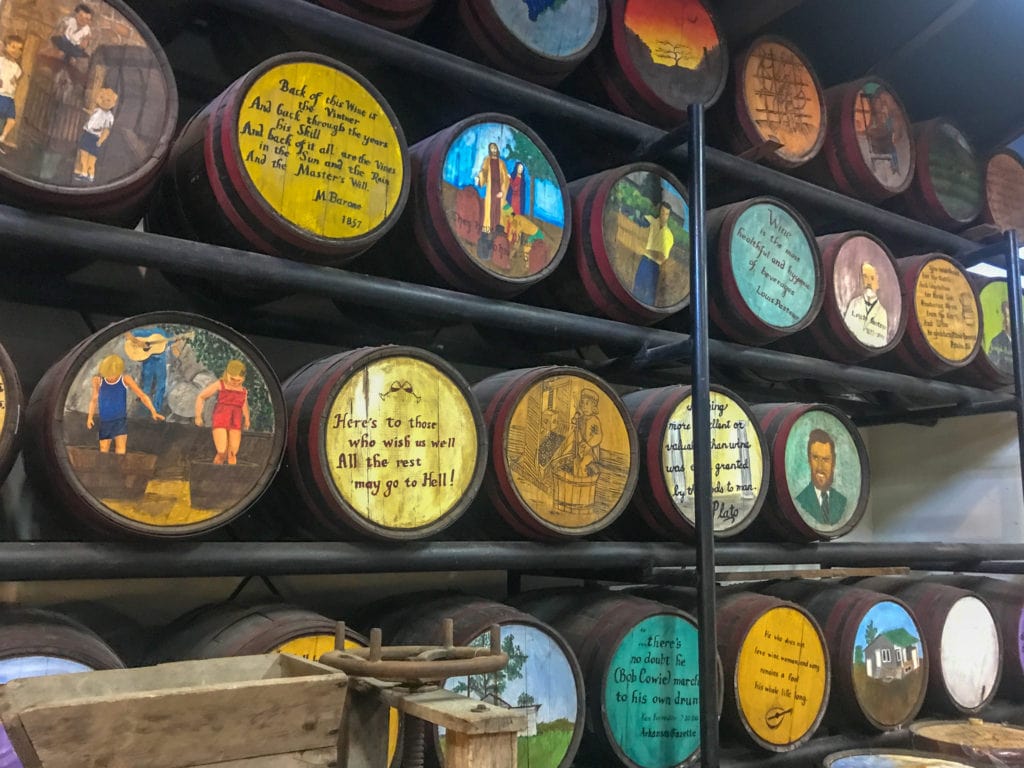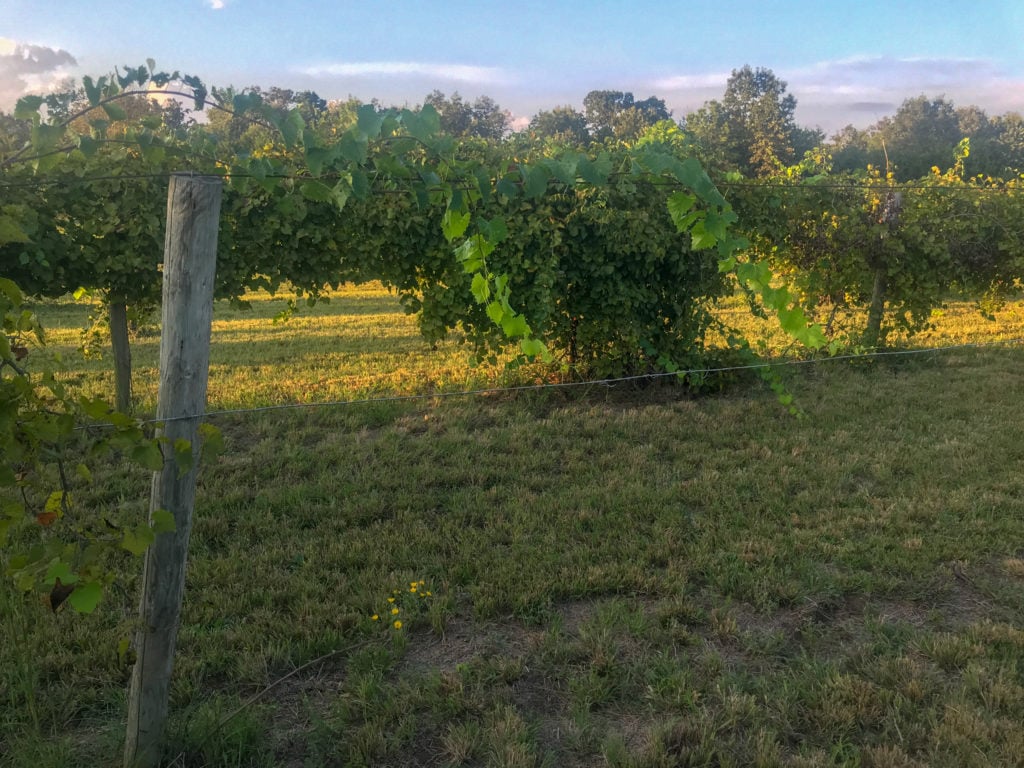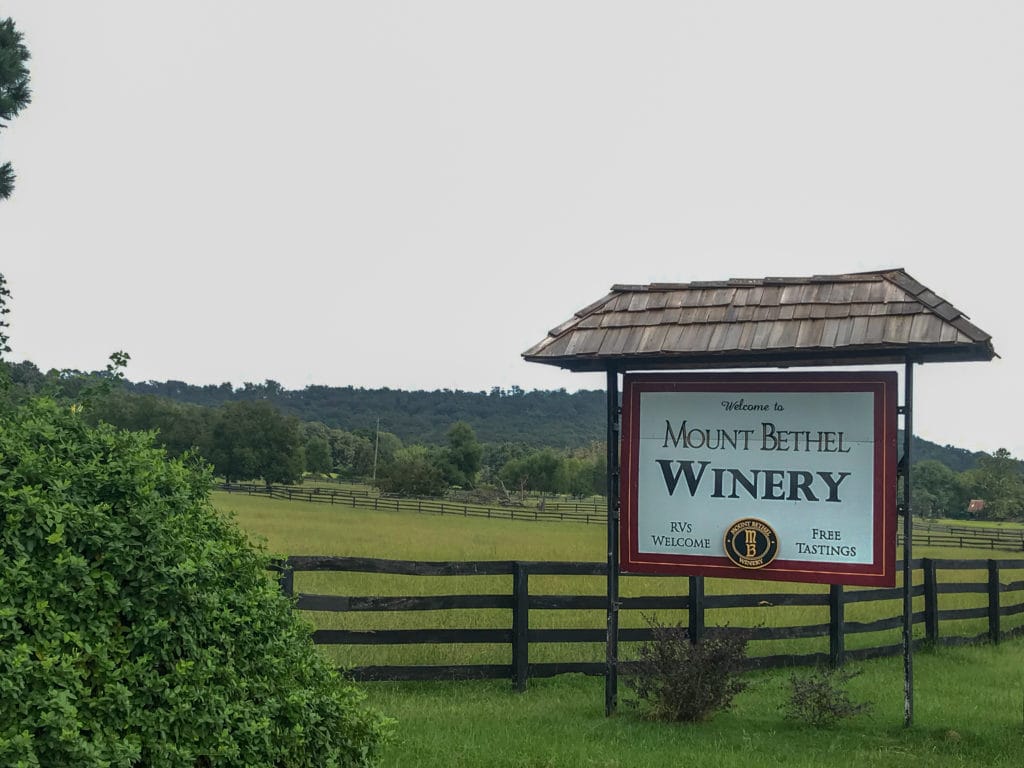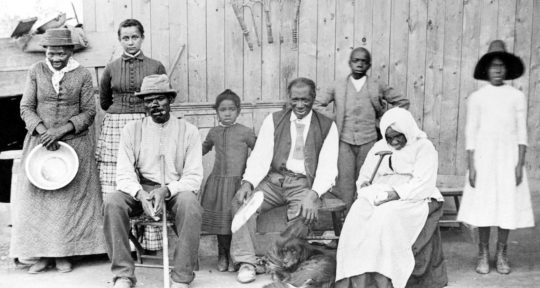The winery is only a 10 minute drive from my hotel, but I spend most of that time thinking that I’m lost. I pass a few cars on the winding, two-lane highway, but for the last few miles, I’m alone with the cows standing in the fields along Highway 64. I pass a sign that proclaims, “Welcome to Altus, the Wine Capital of Arkansas.”
This small town in northwestern Arkansas is home to 800 people and five wineries—with a sixth just a short drive away. The Post Familie Winery, where I’m currently headed, is one of two wineries run by descendants of the Post family, who first started making wine in the area more than 140 years ago. A unique climate and the influence of European immigrants has made winemaking a tradition in this part of the state since the 1880s.
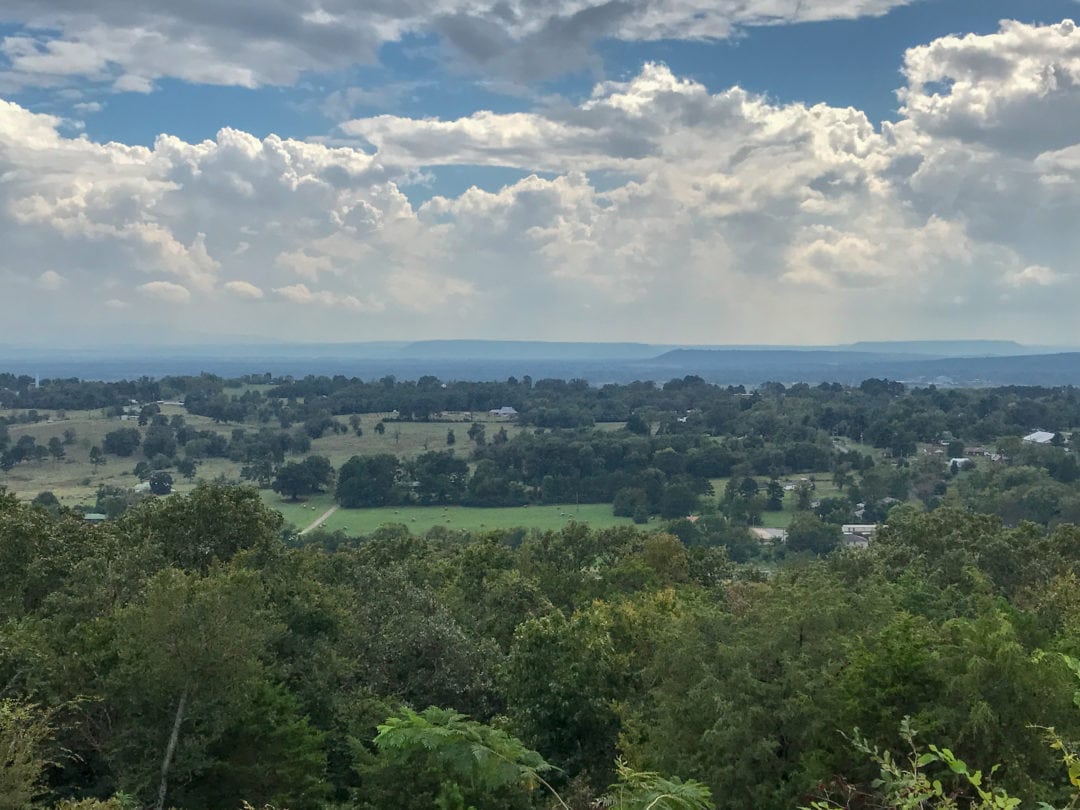
It all started with a monastery
Altus, located about two hours south of Eureka Springs, is nestled in a valley of the Ozark Highlands, sandwiched between the Arkansas River and the Ozark National Forest. Altus briefly became part of the cultural conscience in 2003 when it was chosen as the new, temporary hometown of Paris Hilton and Nicole Richie in The Simple Life. But the history of winemaking in the area goes back long before the month the socialites spent in the town. For generations, farmers have been tending to vineyards in the rolling hills of northwest Arkansas, and each of the commercial wineries currently in production are open to the public for tours and tastings.
“We actually take a product from the ground where we propagate the grapes, plant them, raise them, harvest them, package them,” says Tina Post of Post Familie Wineries. “We take something from the farm to the table.”
-
Subiaco Abbey. | Photo: Emily Becker -
Cowie Wineries. | Photo: Emily Becker -
Post Winery. | Photo: Emily Becker
It all started back in the late 1800s when monks from a German-speaking part of Switzerland established a Benedictine monastery in Subiaco, according to the Arkansas Historic Wine Museum at Cowie Wine Cellars and Vineyards in the nearby town of Paris. German, Swiss, and Alsatian families followed, bringing their winemaking traditions with them. Grapes grow wild in the area, so the museum also notes that it’s likely some form of wine existed in northwest Arkansas even before the first immigrants arrived.
According to Post, the area is located within a unique microclimate that makes it particularly good for growing grapes. A viticulturist (or expert in the scientific study of grapes and their production for food and beverages) came to Altus once and described the region to Post: “This is where the east meets the west, and the north meets the south, botanically.”
While Cynthiana is officially the state grape of Arkansas, in Altus, muscadine is king. The sweet grape is native to the southwest and comes in purple and white varieties. According to Post, muscadine can’t grow much farther north than northwest Arkansas. It can be eaten straight off the vine or made into juice or jam, in addition to wine.
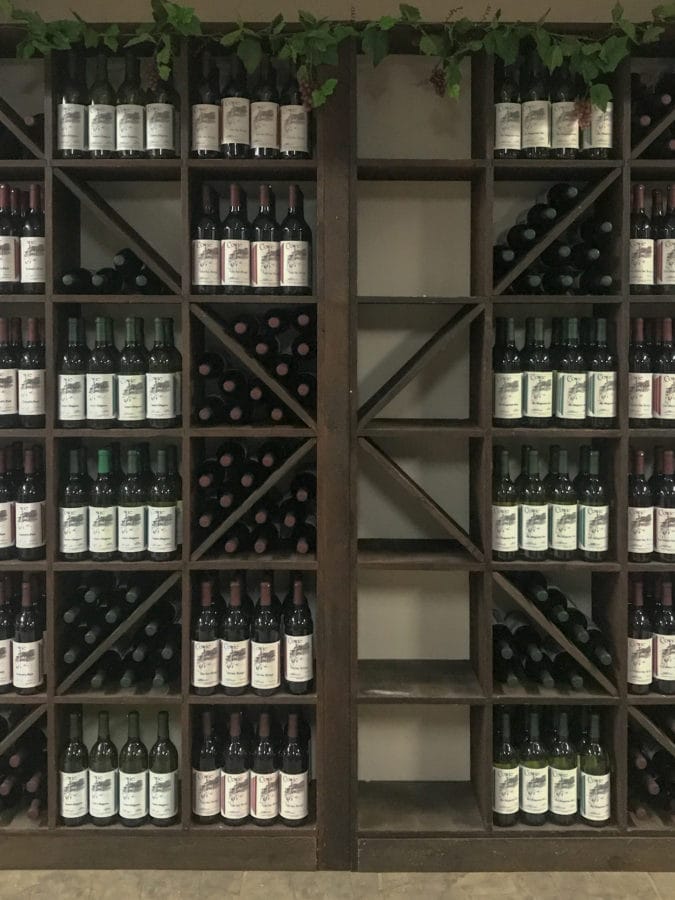
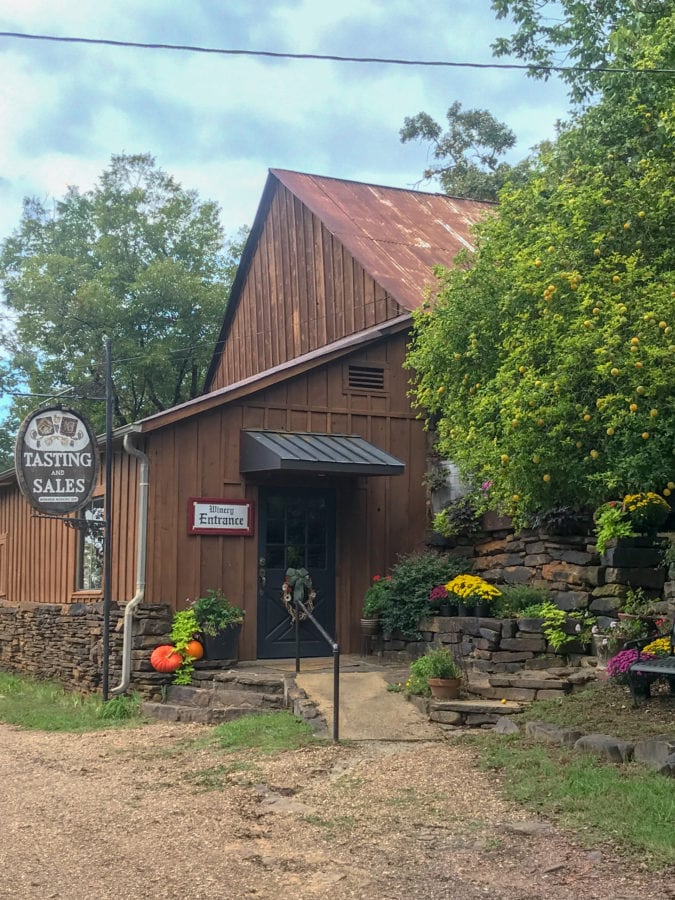
“It’s still probably the number one grape in the south for making homemade jams, jellies, and wines,” Post says. “People still know about it as ‘that grape that was growing behind my grandma’s barn.’”
All in the family
Prohibition hit the area hard, although families were able to make wine for personal consumption, medicinal purposes, or for use at Catholic mass. At Mount Bethel, the other Altus winery in the Post family, Kacey Post tells me that Katherine Post, the daughter-in-law of the first generation of Posts who settled in the area, was sent to jail for making and selling wine during Prohibition. As the mother of twelve children, Katherine was more than happy to have some time away from her family, Kacey jokes.
Stories like these are abundant during tastings at any of the Altus wineries. It’s an area where you’re likely to be trying wine with both tourists who have come to the area on vacation and people who have grown up here and have known the winemaking families for years. And since the wineries are so close together, you’ll likely keep seeing the same faces at different places throughout the day.
-
Wine barrels at Cowie Winery. | Photo: Emily Becker -
Muscadine grape vines. | Photo: Emily Becker -
Mount Bethel Winery. | Photo: Emily Becker
It’s up St. Mary’s Mountain from Post Familie at Wiederkehr Wine Cellars that I first run into the Party Posse, a group of four women (and one dad who has volunteered to be their driver for the day). Wiederkehr, first opened in 1880, is designed to look like an Alpine Chalet. The hand-dug wine cellar is on the National Register of Historic Places and currently functions as a restaurant.
When the Party Posse finds out I’m traveling alone, they invite me to dinner. Later in the day, they take me to pick some muscadines of my own on a farm owned by family members of one of the women.
“There’s never a dull moment,” Post says about her family’s wineries. “You meet so many amazing people. You’re all over the map with the people you get to visit with and experience their story a little bit.”
The next generation
Most of the day-to-day operations of Post Familie and Mount Bethel are run by the fifth generation of Posts, with members of the sixth generation helping out during summer breaks from college. For the Posts, wine is just part of the family at this point.
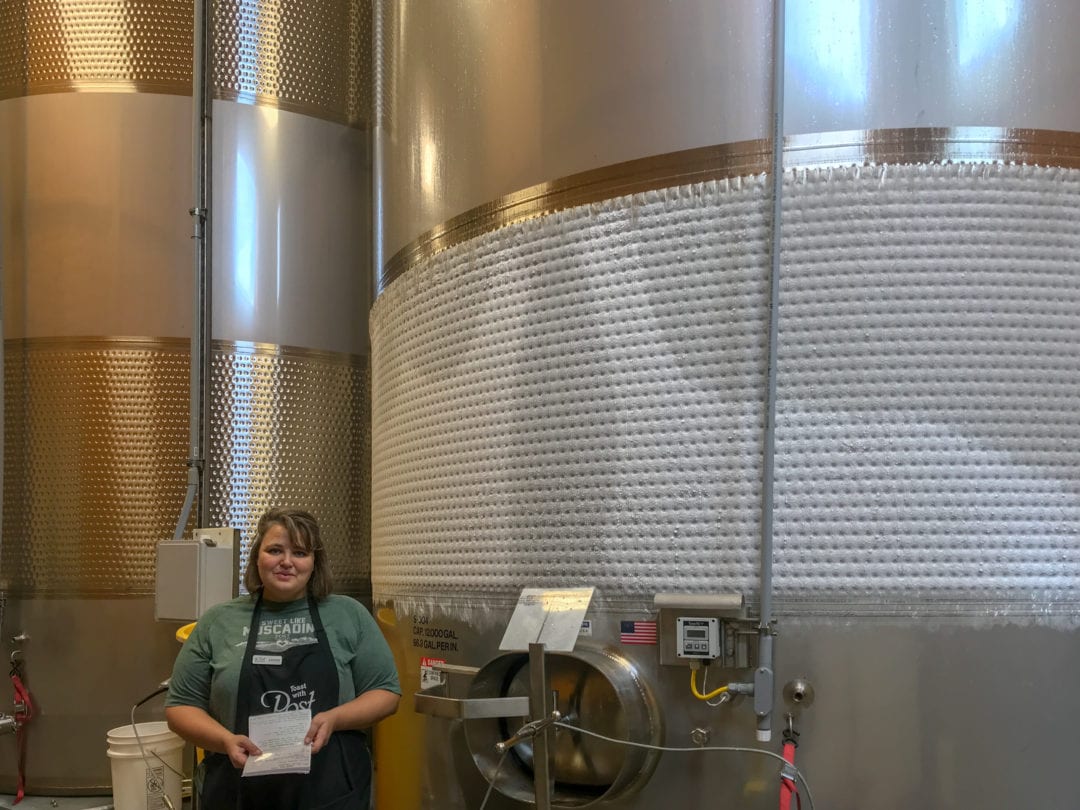
“I grew up in a winery, seriously,” Post says. “We lived in the winery, and we thought that was normal, you know, to have a bottling room outside your door.”
I leave Altus that evening with a deeper appreciation for the history of the area—along with two bottles of wine and a palate of muscadine grapes. The sun has already set and winery production has stopped for the day, but the next day, the Posts will be back in the fields and in the tasting rooms. It is, after all, a family tradition.
If you go
Altus is located two hours from both Little Rock and Eureka Springs in northwestern Arkansas. Most of the wineries are open seven days a week, with limited hours on Sundays. Wine tastings are free and tours occur frequently throughout the day.


